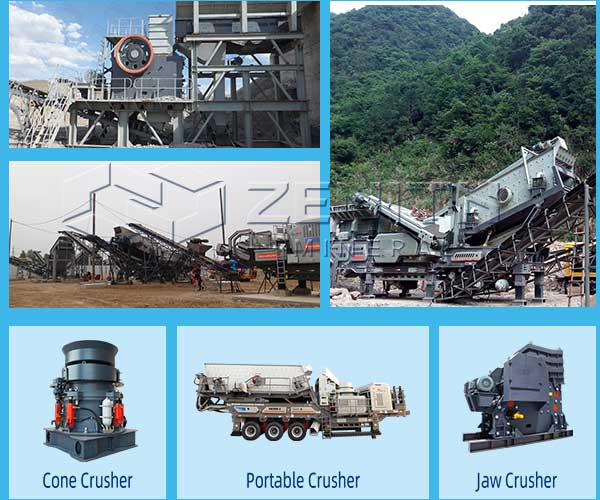
Ethiopia’s quarry industry is booming, driven by rapid urbanization, infrastructure development, and government-led housing projects. Stone crusher machines are essential for producing aggregates used in construction, roads, and railways. With the country’s abundant basalt, limestone, and granite deposits, selecting the right crusher is critical for efficiency and profitability.
Jaw crushers, like those from Zenith, are ideal for primary crushing in Ethiopia’s quarries. They handle large rocks with compressive strengths up to 320 MPa, such as basalt and granite, offering a reduction ratio of 3:1 to 6:1. Their robust construction, featuring manganese steel liners and heavy eccentric shafts, ensures durability under harsh conditions.
Zenith’s PE series and C6X series are widely used in Ethiopia. These models offer capacities from 80–1500 tons per hour, optimized crushing chambers, and hydraulic wedge-setting adjustments for easy maintenance. Their ability to process feed sizes up to 500mm makes them suitable for quarries near Addis Ababa and Mekelle.
In Ethiopia, jaw crushers (50–80 tph) cost approximately USD 150,000–250,000, with high shipping costs (15–20%) due to long sea routes. Local suppliers and Chinese manufacturers like Liming Heavy Industry provide cost-competitive options with after-sales support.
Mobile crushers, such as Zenith’s portable crushing plants, are popular in Ethiopia due to their mobility and quick setup. They eliminate the need for transporting raw materials, reducing costs in remote quarries. These units are ideal for processing limestone and basalt for road and housing projects.
Mobile jaw, impact, and cone crushers are available. For example, Zenith’s 100–120 tph mobile plant in Addis Ababa processes limestone into 0–6mm, 5–14mm, and 14–25mm aggregates. Features like hydraulic belt conveyors and wireless remote control enhance operational efficiency.
Mobile crushers save on transportation and fuel costs, with high throughput (up to 150 tph) and energy-efficient designs. Prices for complete mobile plants (150 tph) range from USD 280,000–380,000, but their flexibility justifies the investment for contractors in Ethiopia’s dynamic quarry sector.
Impact crushers, such as Zenith’s PFW series and mini impact crushers, are used for secondary crushing in Ethiopia. They produce cubic-shaped aggregates ideal for concrete and road construction, handling materials like limestone and soft basalt with capacities of 150–2000 tons per hour.
These crushers feature heavy-duty rotors and hydraulic adjustment systems for precise output sizes. However, blow bars and counterattack plates wear quickly when crushing harder rocks, requiring frequent replacements. Zenith’s intelligent control systems minimize downtime by monitoring operations.
Impact crushers are common in quarries supporting Ethiopia’s infrastructure projects, such as highways and dams. Their ability to process recycled materials also aligns with sustainable construction practices. Local demand for high-quality aggregates drives their adoption in urban centers like Dire Dawa.
Cone crushers, like Zenith’s HPT multi-cylinder and Zenith’s hydraulic cone crushers, excel in secondary and tertiary crushing. They produce fine aggregates (5–14mm) for asphalt and concrete, with capacities of 30–2000 tons per hour. Their hydraulic systems ensure stable operation and easy cavity clearing.
Ethiopia’s basalt, with its moderate hardness, is well-suited for cone crushers. These machines handle feed sizes up to 350mm and offer low noise and small floor space, making them ideal for stationary plants near Bahir Dar.
Cone crushers (100–150 tph) cost USD 280,000–380,000 in Ethiopia, with high import duties adding 10–15%. Their long service life and low operational costs make them a cost-effective choice for large-scale quarries.
Hammer crushers, such as those from Zenith and Liming, are suited for crushing soft stones like limestone and gypsum with compressive strengths below 100 MPa. They offer large crushing ratios and uniform particle sizes, with capacities up to 500 t/h.
While cost-effective, hammer crushers are less durable for hard rocks and require frequent hammer replacements. Their maintenance is complex, increasing long-term costs. In Ethiopia, they are used in smaller quarries for sand production.
These crushers are affordable for small-scale operators in Ethiopia, with prices starting at USD 100,000 for 50 tph models. Their role in producing cushion materials for local construction projects supports their niche demand.
Ethiopia’s quarry industry demands robust, efficient, and adaptable stone crusher machines to meet the growing need for aggregates. Jaw crushers lead in primary crushing, mobile crushers offer flexibility, and impact and cone crushers ensure high-quality output. Hammer crushers serve smaller operations with softer materials. By considering capacity, material type, and local conditions, quarry operators can select machines that maximize productivity and profitability, supporting Ethiopia’s infrastructure boom.
We have jaw crushers, impact crushers, cone crushers, sand makers and so on.
Mon - Sun, 0:00 - 24:00
24h Online Service
© Zenith. All Rights Reserved. Designed by
